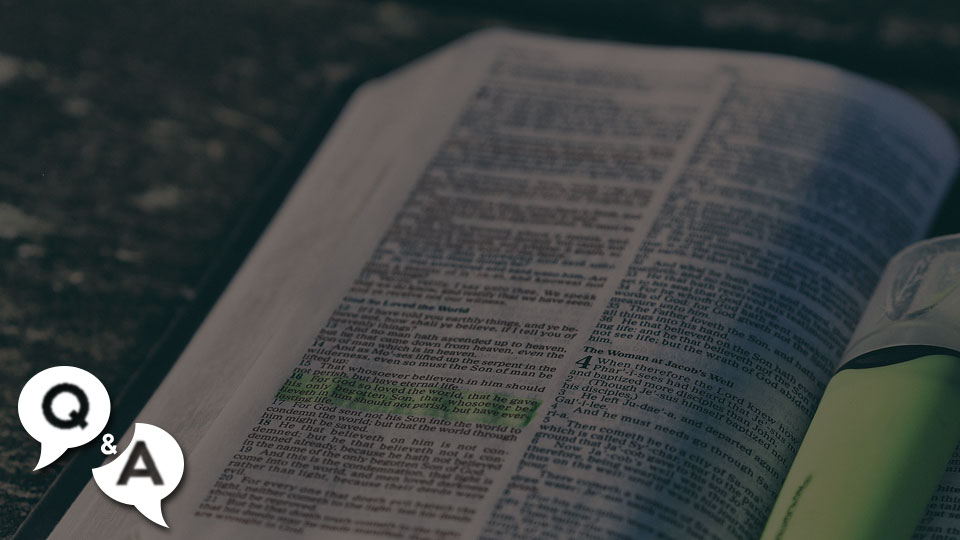6/28/20 • 13th Sunday in Ordinary Time
First Reading: 2 Kings 4:8–11, 14–16a
Psalm: Psalm 89:2–3, 16–17, 18–19 (2a)
Second Reading: Romans 6:3–4, 8–11
Gospel Acclamation: 1 Peter 2:9
Gospel: Matthew 10: 37–42
Introduction
Our Judeo-Christian faith is a reliance on God’s promises, a trust in His hidden miracles, a rebirth into a new life, priesthood and nation, a world within this present world but that is greater than it and will be beyond it. It is the world without end, amen. That is the subject of the readings for this Sunday.
First Reading
Elisha was a prophet, a holy man of God, who went about Israel bringing the word of God to the people and taking care of those in need. In doing so, he performed miracles which are in many ways like those of Jesus, of whom he is a “type” or prefigurement. In his itinerant ministry, Elisha depended on the people to provide him with food and shelter, and he in turn beseeched the Lord to bless those who provided for him. In this first reading we will see an illustration of the Gospel reading.
The Shunamite woman recognized Elisha for who he was: a prophet, a holy man of God. At first, she provided meals for him. Later, she set up on her roof a furnished room for him to stay in when he and his servant Gehazi came to her village in his rounds. She asked for nothing in return, but Elisha wanted to bless her in some way. Sharp-eyed Gehazi had noticed that her husband was getting old and would likely have no son to provide for her when he is gone. He suggests that Elisha do something about that.
Elisha had Gehazi call the woman to him. He promised her a son by the time he returned the following year. She seemed to think Elisha was joking — a rather bad joke at that — but his prediction came true. And that is not all. Elisha later raised her son from the dead when the boy died from a stroke or an aneurysm later in the biblical chapter. I encourage you to read the whole chapter. It is amazing!
Psalm
Psalm 89 is a messianic psalm celebrating the promises of the Lord, His faithfulness, and the fact that we can walk in the light of His countenance. Through His justice we are exalted as we exalt Him. The psalmist also celebrates God’s provision of a strong king, David, through whom He is establishing an unending dynasty. Our God is a wonder-working, promise-making God. We learn, too, that often the miracles and promises are hidden for a time, only to break forth again.
Second Reading
The Apostle Paul makes some astounding claims about our baptism, whether when we are infants, children, or adults. Through baptism, we are buried with Christ and are raised to a new, eternal life with and in Him. We are citizens of a new nation, part of a new people. But what has happened to us has to be united with faith. We must think of ourselves as dead to sin and living for God in Christ Jesus. We must believe it. Lord, we believe; help our unbelief. Baptism, like all the Sacraments, is often something of a hidden miracle. And I have seen many times that people have doubted when anything happened in them, and yet, either suddenly, or gradually over time, they bear fruit. The people awaken and believe and — miracle of miracles — they start becoming a new creation in Christ and His Church.
Gospel Acclamation
You are a chosen race, a royal priesthood, a holy nation;
announce the praises of him who called you out of darkness into his wonderful light.
Gospel
In this week’s Gospel reading, Jesus says that our allegiance must be first and foremost to Him, above our allegiance to our families and friends. John the Baptist, as His herald, understood this. It would have been so easy to want to keep all his followers, but instead, he pointed them towards the Lamb saying, “He must increase, and I must decrease.”
Since Jesus carried His cross to His death and crucifixion, so must we. As Dietrich Bonhoeffer said, “When Christ calls a man, He bids him come and die.” But we are dying so that we might give birth to and experience the life of Jesus amid our dying. There is joy and exultation amid our suffering.
God will also provide what we need for our journeys; He promises us this. He will reward us like He did the Shunamite woman in our First Reading. Often, His miracles are small and easily missed, so be looking for them.
Conclusion
I am an accountant. I have been taught that two plus two equals four. But that does not apply with God. He brought us through our last recession with my job insecurity, our son fighting for his life against deadly medical conditions and his insurance running out. He did it, not I. Read chapter 4 of Second Kings and see what God can do!
May God bless the reading of His word in our lives so that our hearts may be enkindled and our faith revived, and that we may become channels of transformation to the people around us. Amen.







